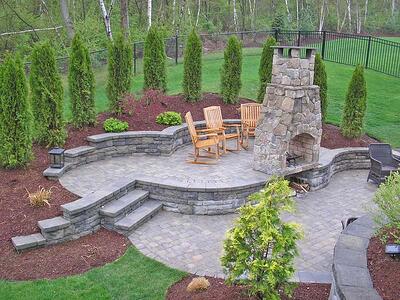 This question is often asked by many home owners.
This question is often asked by many home owners.
The quick answer is as high as you need it to be. In saying that, there are different requirements needed in building a 2' high wall as compared to 22' high wall. Both can be built. Here are some of the factors that would determine what the specifications would need to be:
How high would the wall need to be?
What type of block are you planning to use?
Are engineered plans required?
What are the local and state regulations? Connecticut says that any wall over 36" has to be engineered.
What type of soil do you have?
What will the grade (or slope) be on the top and bottom of the wall?
What will the use be on the top and bottom of the wall?
Is there water runoff in the area where you would like to build the wall?
How close to your property line is the proposed wall going to be?
Is it a cut or fill situation?
What type of budget do you have?
All or most of these questions need to be answered in order to know what the design of the wall should be. You can go to our web site and see a typical cross section for how we generally build a wall, which can only be used as a guide or rule of thumb. You can also go onto the NCMA's web site. The National Concrete Masonry Association sets the industry standards and gives recommendations to retaining wall construction.
There is one really big thing to keep in mind....not all walls are created equal. Your wall needs to be designed and built for your situation. A lot of information found in catalogs or on web sites are there for guidelines, the exact design and construction should be done by a professional company, and in many cases an engineer should be involved. There are many small 2' high walls that were not installed correctly and are leaning or tipping forward. In 99% of the situations, it is not the retaining wall block's fault. It was installed wrong.
Be an educated consumer....do your research......check your contractors' referrals.....get the job done right the first time!!!!
Additional Reading:
How much do Retaining Walls Cost?
4 Things to Consider when Planning a Retaining Wall Project
Comparing Bids Between Landscape Contractors